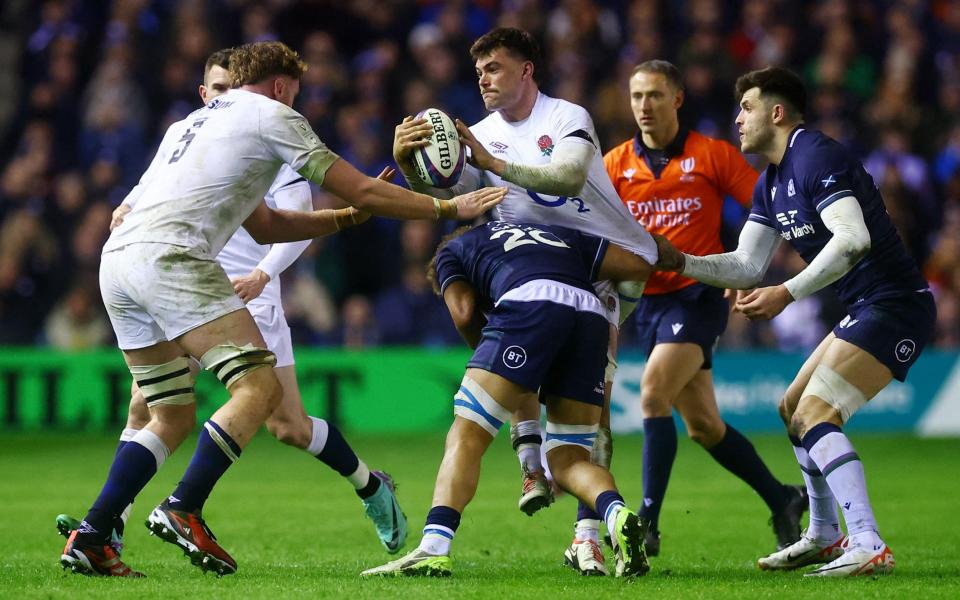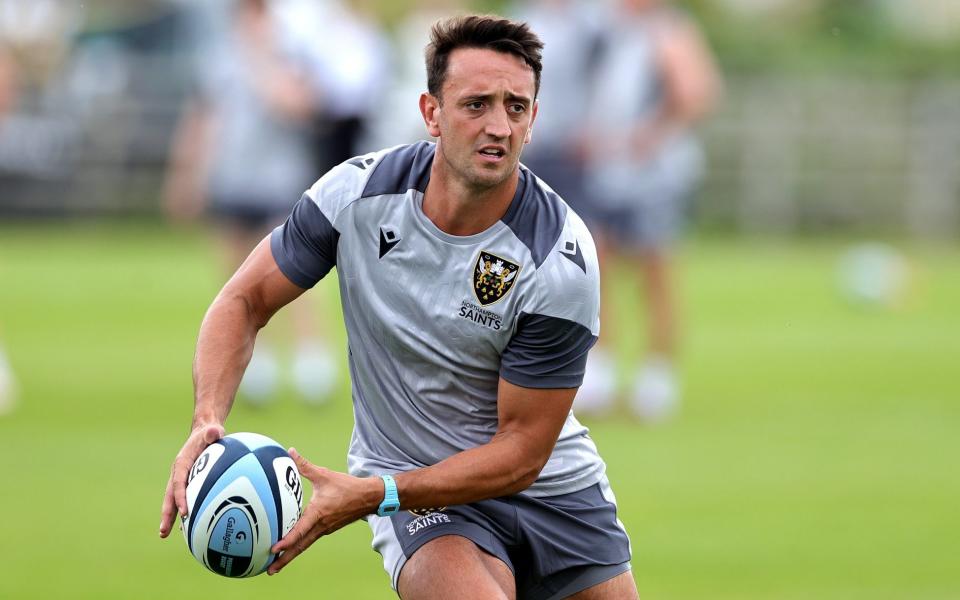Frustration in England camp as blitz defence prioritised over attack

England’s misfiring attack is not being prioritised in training with Telegraph Sport learning that one prominent back touched the ball just once in a particular session.
The revelation comes as the country’s most-capped male player Ben Youngs has questioned how many attacking reps England’s players are undertaking in training. In their 30-21 defeat by Scotland, England committed 25 handling errors and 22 turnovers. With fixtures to come at home to Ireland and away to France, England have scored just six tries in this Six Nations.
Telegraph Sport understands that there is growing frustration within parts of the camp that far more time is devoted to building the hyper-aggressive blitz defence under Felix Jones than honing the attack under Richard Wigglesworth. That lack of focus stands in stark contrast to how the most innovative attacks in the Premiership operate.
Under Sam Vesty at Northampton, every player would be expected to have 150 ‘touches’ of a variety of different balls per session. Similarly at Bath, for example, backs would be expected to pass the ball at least 100 times each and forwards 50 times. Several sources confirmed that one English back, who has featured in the tournament, only got one touch during a session.

Asked about whether England’s poor passing and catching at Murrayfield would lead to a renewed focus on skills work, Wigglesworth said: “We do lots of it and wouldn’t want to be reactionary, but I need to know the reasons why both individually and as a team.”
Yet the fact that so many of England’s handling errors were in dry conditions without Scottish pressure has caused Youngs, who retired after last year’s World Cup, to question how much attention attacking play really receives in the camp.
“We have wonderful, gifted players who are great at the line and executing,” Youngs said on the For The Love Of Rugby podcast. “They are brilliant. That makes me think that maybe during the week they are not getting enough reps. Maybe the attack isn’t the focus in the week as much as it should be because there is a new defensive system and maybe that is taking a huge amount of priority along with the foundations of a high kicking game.
“Although they are talking about growing this attack, I am not sure they are getting the reps and the amount of time spent on it to fine tune it. That’s what I am seeing. We look like a team that has only run the strike plays twice in the week and when trying to run it against an opposition trying to stop us, essentially we came unstuck.”
One prominent Premiership coach told Telegraph Sport that England were “seeing ghosts” at Murrayfield because he believes they were used to defending against their own blitz defence in training. Hence England’s playmakers were making unforced errors playing like there were defenders in their face while Scotland were actually sitting off them.
The first-phase strike move that led to the early try by George Furbank was cunningly designed but when England are forced to go off script, either through multi-phase or playing off turnover ball, they rapidly lose their attacking shape. By contrast two of Scotland’s three tries came from turnover ball.
Youngs, who also played under Borthwick at Leicester, added that attack is not “high on his [Borthwick’s] agenda” and that the performance against Scotland was “not an isolated incident”. Indeed, statistics from Opta show that England have averaged fewer than 25 points and 2.5 tries per game against ‘Tier One’ opposition in every year since 2019. While there have been some improvements this year, in terms of defenders beaten and spreading play past first and second receiver, England’s return of 1.8 points per entry into the 22 is the worst in the championship.
Under Eddie Jones, former attack coach Martin Gleeson revealed they did not practise their red-zone finishing. Like Youngs, winger Jonny May, who retired from international rugby after last year’s World Cup, does not believe much has changed under Borthwick. “We didn’t particularly focus on attack with Eddie,” May said. “I wouldn’t expect that attack is a priority with Steve either.”
Borthwick has frequently stated that the attack is the longest thing to get right and that England still lack the cohesion of other sides. However, the more he repeats this as a mantra, the greater the risk that it becomes a self-fulfilling prophecy.


